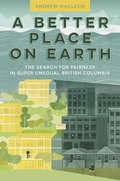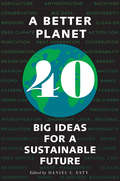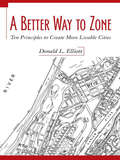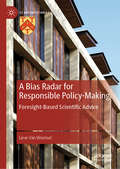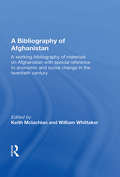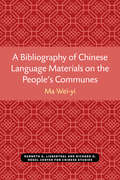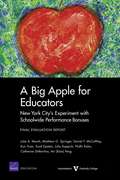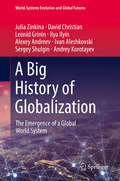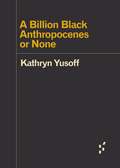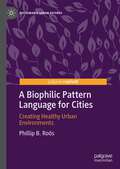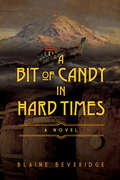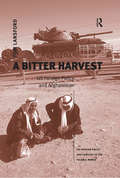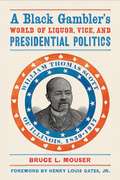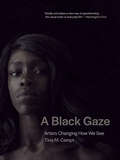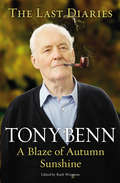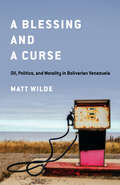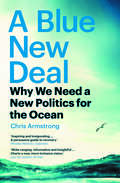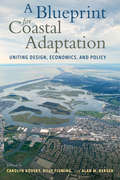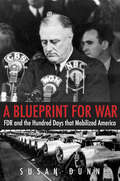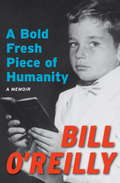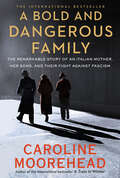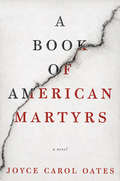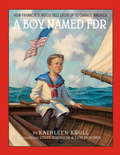- Table View
- List View
A Better Place on Earth
by Andrew MacleodIn British Columbia, like most of the world, the wealth of the richest one percent has grown exponentially in recent decades, while the majority have found their incomes stagnant or even declining. The top 10 percent in BC now hold 56.2 percent of the wealth, a greater share than anywhere else in Canada. Our richest have wealth counted in the billions while the poorest sleep in downtown doorways, or have to choose between medicine and food. Those in the middle report working harder without getting ahead and many British Columbians owe more than they own. To illustrate the wide-ranging ramifications of inequality, MacLeod interviews economists, politicians, policy-makers and activists, as well as those living on the edge: a single parent whose child support payments are clawed back by the government; a 25-year-old struggling to live on disability payments who won't share his identity for fear of repercussions from the system; a security guard who wasn't given bathroom breaks, didn't drink water at work and eventually had to have a kidney removed as a result of severe dehydration. Some assume that such disparity is inevitable even in BC, a wealthy province lauded by the government as "The Best Place on Earth." However, MacLeod deftly argues that British Columbians are living with the consequences of short-sighted public policies, and adjusting those policies can achieve a different set of results. Informative, well-researched, cautionary and hopeful, A Better Place on Earth provides an in-depth look at inequality and suggests what British Columbians can do to make sure everyone's basic needs are met, pull back stratospheric incomes and create a fairer society.
A Better Planet: Forty Big Ideas for a Sustainable Future
by Daniel C. Esty Ingrid C. BurkeA practical, bipartisan call to action from the world’s leading thinkers on the environment and sustainability Sustainability has emerged as a global priority over the past several years. The 2015 Paris Agreement on climate change and the adoption of the seventeen Sustainable Development Goals through the United Nations have highlighted the need to address critical challenges such as the buildup of greenhouse gases in the atmosphere, water shortages, and air pollution. But in the United States, partisan divides, regional disputes, and deep disagreements over core principles have made it nearly impossible to chart a course toward a sustainable future. This timely new book, edited by celebrated scholar Daniel C. Esty, offers fresh thinking and forward-looking solutions from environmental thought leaders across the political spectrum. The book’s forty essays cover such subjects as ecology, environmental justice, Big Data, public health, and climate change, all with an emphasis on sustainability. The book focuses on moving toward sustainability through actionable, bipartisan approaches based on rigorous analytical research.
A Better Way to Zone: Ten Principles to Create More Livable Cities
by Donald L. ElliottNearly all large American cities rely on zoning to regulate land use. According to Donald L. Elliott, however, zoning often discourages the very development that bigger cities need and want. In fact, Elliott thinks that zoning has become so complex that it is often dysfunctional and in desperate need of an overhaul. A Better Way to Zone explains precisely what has gone wrong and how it can be fixed. A Better Way to Zone explores the constitutional and legal framework of zoning, its evolution over the course of the twentieth century, the reasons behind major reform efforts of the past, and the adverse impacts of most current city zoning systems. To unravel what has gone wrong, Elliott identifies several assumptions behind early zoning that no longer hold true, four new land use drivers that have emerged since zoning began, and basic elements of good urban governance that are violated by prevailing forms of zoning. With insight and clarity, Elliott then identifies ten sound principles for change that would avoid these mistakes, produce more livable cities, and make zoning simpler to understand and use. He also proposes five practical steps to get started on the road to zoning reform. While recent discussion of zoning has focused on how cities should look, A Better Way to Zone does not follow that trend. Although New Urbanist tools, form-based zoning, and the SmartCode are making headlines both within and outside the planning profession, Elliott believes that each has limitations as a general approach to big city zoning. While all three trends include innovations that the profession badly needs, they are sometimes misapplied to situations where they do not work well. In contrast, A Better Way to Zone provides a vision of the future of zoning that is not tied to a particular picture of how cities should look, but is instead based on how cities should operate.
A Better World: Stalinism and the American Intellectuals
by William L. O'NeillThis book chronicles the struggle among non-Communist leftists and liberals over American relations with the Soviet Union from 1939 through the 1950s. Few now care as passionately and as violently as people did then about Soviet-American relations. It was a time when friends became enemies, and others forged strange alliances, all in the name of commitments that today seem remote. A Better World evokes those times and their choices, and explains why these long-ago battles still arouse such deep feelings today - and should.Americans who were pro-Soviet without being members of the Communist party - 'progressives' as they called themselves - had a large emotional investment in the Soviet Union. From 1935 to 1939 literally millions joined the 'Popular Front' of pro-Soviet organizations. O'Neill takes us through the shock of the Stalin-Hitler pact of 1939, through the revival of the Popular Front spurred by government and business support after Russia entered the war against Hitler. He traces the isolation of the anti-Stalinists, the rise and fall of Henry Wallace, and the eclipse of progressivism. And he explores the shifting allegiances of intellectuals as they struggled, often with each other, to influence the course of public debate, with long-lasting consequences for American intellect, culture, and morals.As O'Neill observes in his introduction, 'More than any of my other books A Better World inspired correspondents to send me probing or reflective letters.' It was this response, along with the extraordinary critical debate spurred by initial publication of this volume, that makes the book's continuing importance clear. The dream of achieving a better world through radical violence never dies, and the willingness of apologists to cling to utopian visions persists. As long as it does, the lessons of this book need to be available to us.
A Bias Radar for Responsible Policy-Making: Foresight-Based Scientific Advice (St Antony's Series)
by Lieve Van WoenselPolicymakers prepare society for the future and this book provides a practical toolkit for preparing pro-active, future-proof scientific policy advice for them. It explains how to make scientific advisory strategies holistic. It also explains how and where biases, which interfere with the proper functioning of the entire science-policy ecosystem, arise and investigates how emotions and other biases affect the understanding and assessment of scientific evidence. The book advocates explorative foresight, systems thinking, interdisciplinarity, bias awareness and the anticipation of undesirable impacts in policy advising, and it offers practical guidance for them. Written in an accessible style, the book offers provocative reflections on how scientific policy advice should be sensitive to more than scientific evidence. It is both an appealing introductory text for everyone interested in science-based policy and a valuable guide for the experienced scientific adviser and policy scholar.
A Bibliography Of Afghanistan
by K. S. McLachlanThis up-to-date, comprehensive, thematically indexed bibliography devoted to Afghanistan now and yesterday will help readers to efficiently find their way in the massive secondary literature available. Following the pattern established by one of its major data sources, viz. the acclaimed Index Islamicus, both journal articles and book publications are included and expertly indexed. An indispensable entry for all those taking professional or personal interest in a nation so much the focus of attention today.
A Bibliography of Chinese Language Materials on the People's Communes (Michigan Monographs In Chinese Studies #44)
by Wei-Yi MaA research tool for scholars studying modern China, particularly those focusing on the post-1949 communal system and economy. The work includes full bibliographic references to some 2,800 essay, articles, pamphlets, and other materials in Chinese taken from more than 130 publications, primarily from mainland. The entries are arranged are arranged topically with annotations. Includes a geographic index to the communes referred to in the listed items.
A Big Apple for Educators: New York City's Experiment with Schoolwide Performance Bonuses
by Matthew G. Springer Daniel F. Mccaffrey Kun Yuan Julie A. Marsh Scott EpsteinFor three school years, from 2007 to 2010, about 200 high-needs New York City public schools participated in the Schoolwide Performance Bonus Program, whose broad objective was to improve student performance through school-based financial incentives. An independent analysis of test scores, surveys, and interviews found that the program did not improve student achievement, perhaps because it did not motivate change in educator behavior.
A Big History of Globalization: The Emergence of a Global World System (World-Systems Evolution and Global Futures)
by David Christian Leonid Grinin Andrey Korotayev Julia Zinkina Ilya Ilyin Alexey Andreev Ivan Aleshkovski Sergey ShulginThis book presents the history of globalization as a network-based story in the context of Big History. Departing from the traditional historic discourse, in which communities, cities, and states serve as the main units of analysis, the authors instead trace the historical emergence, growth, interconnection, and merging of various types of networks that have gradually encompassed the globe. They also focus on the development of certain ideas, processes, institutions, and phenomena that spread through those networks to become truly global.The book specifies five macro-periods in the history of globalization and comprehensively covers the first four, from roughly the 9th – 7th millennia BC to World War I. For each period, it identifies the most important network-related developments that facilitated (or even spurred on) such transitions and had the greatest impacts on the history of globalization.By analyzing the world system's transition to new levels of complexity and connectivity, the book provides valuable insights into the course of Big History and the evolution of human societies.
A Billion Black Anthropocenes or None (Forerunners: Ideas First)
by Kathryn YusoffRewriting the &“origin stories&” of the Anthropocene No geology is neutral, writes Kathryn Yusoff. Tracing the color line of the Anthropocene, A Billion Black Anthropocenes or None examines how the grammar of geology is foundational to establishing the extractive economies of subjective life and the earth under colonialism and slavery. Yusoff initiates a transdisciplinary conversation between feminist black theory, geography, and the earth sciences, addressing the politics of the Anthropocene within the context of race, materiality, deep time, and the afterlives of geology. Forerunners is a thought-in-process series of breakthrough digital works. Written between fresh ideas and finished books, Forerunners draws on scholarly work initiated in notable blogs, social media, conference plenaries, journal articles, and the synergy of academic exchange. This is gray literature publishing: where intense thinking, change, and speculation take place in scholarship.
A Biophilic Pattern Language for Cities: Creating Healthy Urban Environments (Sustainable Urban Futures)
by Phillip B. RoӧsThis book presents a holistic integral sustainable design and planning method embedded in the hypothesis of biophilia, our innate connection to nature, used as a platform to chart a biophilic pattern language framework. In A Biophilic Pattern Language for Cities, the author positioned the innate human-nature connection as critical in biophilic design and sustainable city planning solutions.
A Bit of Candy in Hard Times
by Blaine BeveridgeSet in the late 1920s, at the height of prohibition, this is the story of Emmett Dougal, fisherman and rumrunner who, after having his boat shot out from under him by the Coast Guard off the coast of Maine, decides to return to his Puget Sound roots. Emmett’s journey to rediscover a sense of home puts him on a dangerous path when he is forced back into the rum running business. Along the way he finds an unexpected love interest and rekindles his love for the sea. Emmett’s story provides a uniquely Pacific Northwest regional perspective of this infamous chapter in America’s history.
A Bitter Harvest: US Foreign Policy and Afghanistan (US Foreign Policy and Conflict in the Islamic World)
by Tom LansfordThe 2001 terrorist attacks on the United States formed part of the larger legacy of American interaction in Afghanistan. From the end of World War II onward, American foreign policy had a significant impact on the conflicts that marked the twentieth century history of this troubled land. The role of the United States was magnified by the violence of the ongoing internal ethnic struggles and the external machinations of the superpower Cold War rivalry. In line with the aims of the series, this valuable new book: · presents a historical overview of the causes and legacy of Afghanistan's internal conflict · explores the role and influence of the actors involved, including the various ethnic and religious groups and external powers such as the United States and the Soviet Union · provides the framework for a broader exploration of US policy toward Afghanistan A Bitter Harvest concludes with an assessment of US policy and policy recommendations.
A Black Gambler's World of Liquor, Vice, and Presidential Politics
by Bruce L. MouserWilliam Thomas Scott (1839-1917) was an entrepreneur and political activist from East Saint Louis and Cairo, Illinois, who in 1904 briefly became the first African American nominated by a national party for president of the United States before his scandalous past forced him to step aside. A free man before the Civil War, Scott was a charismatic hustler who built his fortune through both vice trades and legal businesses including hotels, saloons, and real estate. Publisher and editor of the "Cairo Gazette" and an outspoken advocate for equal rights, he believed in political patronage and frequently rebelled against political bosses who failed to deliver, whether they were white, black, Republican, or Democrat. Scott helped build the National Negro Liberty Party to forward economic, political, and legal rights for his race. But the hustling that had brought him business success proved his undoing as a national political figure. He was the NNLP's initial presidential nominee, only to be replaced by a better-educated and more socially acceptable candidate, George Edwin Taylor. "
A Black Gaze: Artists Changing How We See
by Tina M. CamptExamining the work of contemporary Black artists who are dismantling the white gaze and demanding that we see--and see Blackness in particular--anew.In A Black Gaze, Tina Campt examines Black contemporary artists who are shifting the very nature of our interactions with the visual through their creation and curation of a distinctively Black gaze. Their work--from Deana Lawson's disarmingly intimate portraits to Arthur Jafa's videos of the everyday beauty and grit of the Black experience, from Khalil Joseph's films and Dawoud Bey's photographs to the embodied and multimedia artistic practice of Okwui Okpakwasili, Simone Leigh, and Luke Willis Thompson--requires viewers to do more than simply look; it solicits visceral responses to the visualization of Black precarity. Campt shows that this new way of seeing shifts viewers from the passive optics of looking at to the active struggle of looking with, through, and alongside the suffering--and joy--of Black life in the present. The artists whose work Campt explores challenge the fundamental disparity that defines the dominant viewing practice: the notion that Blackness is the elsewhere (or nowhere) of whiteness. These artists create images that flow, that resuscitate and revalue the historical and contemporary archive of Black life in radical ways. Writing with rigor and passion, Campt describes the creativity, ingenuity, cunning, and courage that is the modus operandi of a Black gaze.
A Blaze of Autumn Sunshine: The Last Diaries
by Tony BennIn this final volume of diaries, Tony Benn reflects on the compensations and the disadvantages of old age. With the support of a small circle of friends and his extended family, he continues his activities on behalf of social justice, peace and accountability in public life, to a background of political change and the international economic crisis. Following an illness in 2009 the diaries, kept for over sixty years, cease. Published here alongside these last diaries are Tony Benn’s highly personal insights into the challenges of old age and failing health, of widowhood,and of moving out of the family home after sixty years. Finally, we share in Tony Benn's hopes for the future based on his years of experience and his natural optimism.
A Blessing and a Curse: Oil, Politics, and Morality in Bolivarian Venezuela
by Matt WildeA Blessing and a Curse examines the lived experience of political change, moral uncertainty, and economic crisis amid Venezuela's controversial Bolivarian Revolution. Drawing on ethnographic research conducted in an urban barrio over the course of a decade, Matt Wilde argues that everyday life in this period was intimately shaped by a critical contradiction: that in their efforts to capture a larger portion of oil money and distribute it more widely among the population, the governments of Hugo Chávez and Nicolás Maduro pursued policies that ultimately entrenched Venezuela in the very position of dependency they sought to overcome. Offering a new synthesis between anthropological work on energy, politics, and morality, the book explores how the use of oil money to fund the revolution's social programs and political reforms produced profound cultural anxieties about the contaminating effects of petroleum revenues in everyday settings. Tracing how these anxieties rippled out into community life, family networks, and local politics, Wilde shows how questions about how to live a good life came to be intimately shaped by Venezuela's contradictory relationship with oil. In doing so, he brings a vital perspective to contemporary debates about energy transitions by proposing a new way of thinking about the political and moral economies of natural resources in postcolonial settings.
A Blue New Deal: Why We Need a New Politics for the Ocean
by Chris ArmstrongAn urgent account of the state of our oceans today—and what we must do to protect them The ocean sustains life on our planet, from absorbing carbon to regulating temperatures, and, as we exhaust the resources to be found on land, it is becoming central to the global market. But today we are facing two urgent challenges at sea: massive environmental destruction, and spiraling inequality in the ocean economy. Chris Armstrong reveals how existing governing institutions are failing to respond to the most pressing problems of our time, arguing that we must do better. Armstrong examines these crises—from the fate of people whose lands will be submerged by sea level rise, to the exploitation of people working in fishing, to the rights of marine animals—and makes the case for a powerful World Ocean Authority capable of tackling them. A Blue New Deal presents a radical manifesto for putting equality, democracy, and sustainability at the heart of ocean politics.
A Blueprint for Coastal Adaptation: Uniting Design, Economics, and Policy
by Carolyn KouskyTens of millions of Americans are at risk from sea level rise, increased tidal flooding, and intensifying storms. The design and policy decisions that have shaped coastal areas are in desperate need of updates to help communities better adapt to a changing climate. A Blueprint for Coastal Adaptation identifies a bold new research and policy agenda and provides implementable options for coastal communities. In this book, coastal adaptation experts discuss the interrelated challenges facing communities experiencing sea level rise and increasing storm impacts. These issues extend far beyond land use planning into housing policy, financing for public infrastructure, insurance, fostering healthier coastal ecosystems, and more. Deftly addressing far-reaching problems from cleaning up contaminated, abandoned sites, to changes in drinking water composition, chapters give a clear-eyed view of how we might yet chart a course for thriving coastal communities. They offer a range of climate adaptation policies that could protect coastal communities against increasing risk, while preserving the economic value of these locations, their natural environments, and their community and cultural values. Lessons are drawn from coastal communities around the United States to present equitable solutions. The book provides tools for evaluating necessary tradeoffs to think more comprehensively about the future of our coastal communities. Coastal adaptation will not be easy, but planning for it is critical to the survival of many communities. A Blueprint for Coastal Adaptation will inspire innovative and cross-disciplinary thinking about coastal policy at the state and local level while providing actionable, realistic policy and planning options for adaptation professionals and policymakers.
A Blueprint for War: FDR and the Hundred Days that Mobilized America (The Henry L. Stimson Lectures Series)
by Susan Dunn&“Dunn shows how FDR&’s Third Hundred Days were critical to overcoming isolationism and rebuilding American leadership in an age of global turmoil.&” (E.J. Dionne Jr., New York Times bestselling co-author of One Nation After Trump) In the cold winter months that followed Franklin Roosevelt&’s election in November 1940 to an unprecedented third term in the White House, he confronted a worldwide military and moral catastrophe. Almost all the European democracies had fallen under the ruthless onslaught of the Nazi army and air force. Great Britain stood alone, a fragile bastion between Germany and American immersion in war. In the Pacific world, Japan had extended its tentacles deeper into China. Susan Dunn dramatically brings to life the most vital and transformational period of Roosevelt&’s presidency: the hundred days between December 1940 and March 1941, when he mobilized American industry, mustered the American people, initiated the crucial programs and approved the strategic plans for America&’s leadership in World War II. As the nation began its transition into the preeminent military, industrial, and moral power on the planet, FDR laid out the stunning blueprint not only for war but for the American Century. &“Dunn&’s achievement is to make the view of FDR&’s accomplishment clear.&” —The Boston Globe &“Susan Dunn is one of the great Roosevelt historians of our time.&” —Michael Beschloss, New York Times bestselling author of Presidents of War &“Superbly researched and written.&” —James T. Patterson, Bancroft Prize-winning author of Grand Expectations &“The definitive telling of a pivotal episode in American history.&” —Edward J. Larson, Pulitzer Prize-winning author of The Return of George Washington
A Bold Fresh Piece of Humanity
by Bill O'ReillyThe year was 1957, the month September, and I had just turned eight years old. Dwight Eisenhower was President, but in my life it was the diminutive, intense Sister Mary Lurana who ruled, at least in the third-grade class where I was held captive. For reasons you will soon understand, my parents had remanded me to the penal institution of St. Brigid’s School in Westbury, New York, a cruel and unusual punishment if there ever was one. Already, I had barely survived my first two years at St. Brigid’s because I was, well, a little nitwit. Not satisfied with memorizing the Baltimore Catechism’s fine prose, which featured passages like “God made me to show his goodness and to make me happy with him in heaven,” I was constantly annoying my classmates and, of course, the no-nonsense Sister Lurana. With sixty overactive students in her class, she was understandably short on patience. For survival, she had also become quick on the draw. Then it happened. One day I blurted out some dumb remark, and Sister Lurana was on me like a panther. Her black habit blocked out all distractions as she leaned down, looked me in the eye, and uttered words I have never forgotten: “William, you are a bold, fresh piece of humanity.” And she was dead-on. One day in 1957, in the third-grade classroom of St. Brigid’s parochial school, an exasperated Sister Mary Lurana bent over a restless young William O’Reilly and said, “William, you are a bold, fresh piece of humanity.” Little did she know that she was, early in his career as a troublemaker, defining the essence of Bill O’Reilly and providing him with the title of his brash and entertaining issues-based memoir. And this time it’s personal. In his most intimate book yet, O’Reilly goes back in time to examine the people, places, and experiences that launched him on his journey from working-class kid to immensely influential television personality and bestselling author. Readers will learn how his traditional outlook was formed in the crucible of his family, his neighborhood, his church, and his schools, and how his views on America’s proper role in the world emerged from covering four wars on five continents over three-plus decades as a news correspondent. What will delight his numerous fans and surprise many others is the humor and self-deprecation with which he handles one of his core subjects: himself, and just how O’Reilly became O’Reilly.
A Bold and Dangerous Family: The Remarkable Story of an Italian Mother, Her Sons, and Their Fight Against Fascism
by Caroline MooreheadFrom the bestselling author of A Train in Winter, the story of the Rosselli family, whose courage standing up to Mussolini's fascism helped define the path of Italy in the years between the World Wars."I had a house: they destroyed it. I had a newspaper: they closed it. I had a university chair: I was forced to abandon it. I had--as I still do--dreams, dignity, ideals: to defend them I was sent to prison. I had teachers: they murdered them." --Carlo Rosselli on Italy's fascist regime Italy's Rosselli family were members of the cosmopolitan, cultural elite in Florence at the start of the 20th century. Led by their fierce matriarch, Amelia Rosselli, they were also vocal anti-fascists. As Mussolini rose to power in Italy following WWI, the Rossellis took leading roles in the rebellion against him, a stance that few in their class would risk. And when Mussolini established a police state whose tactics grew more brutal, the Rossellis and their anti-fascist friends transformed from debaters and critics into activists. As punishment for their participation in revolutionary activities, the Rossellis' homestead was ransacked, one after another of their number was imprisoned, others in the family fled the country to escape a similar fate, and two were eventually assassinated on the orders of Mussolini's government. After the outbreak of WWII, Amelia fled with the remaining members of the Rosselli family to New York City. Their visas were arranged by Eleanor Roosevelt herself. Through the stories of these brave people and their friends, renowned historian Caroline Moorehead delivers an immersive picture of Italy in the first half of the 20th century. She reveals the rise and fall of Mussolini and his black-shirted Squadristi; the ambivalence of many prominent Italian families to Mussolini and their seduction by his promises; and the bold, fractured anti-fascist movement, so many of whose members died at Mussolini's hands. Continuing "The Resistance Quartet" she began with A Train in Winter and continued with Village of Secrets, Moorehead once again shows us the faces of those who helped the world hold on to its humanity at a time when it seemed all might be lost.
A Book of American Martyrs: A Novel
by Joyce Carol Oates“Oates’ American saga captivates because it exists within an actual drama playing out across the country...Martyrs is a graceful and excruciating story of two families who do not live very far apart, but exist in different realities. ” --USA Today, 4-star review“Successful because [Oates] refuses to satirize or dehumanize anyone, even murderous foes of abortion...With its wrath and violence, A Book of American Martyrs offers this teaspoon of warmth in these troubled times: that it is possible to be wrong without surrendering your humanity.” --Los Angeles Times“The most relevant book of Oates’s half-century-long career, a powerful reminder that fiction can be as timely as this morning’s tweets but infinitely more illuminating.” --Washington PostA powerfully resonant and provocative novel from American master and New York Times bestselling author Joyce Carol Oates In this striking, enormously affecting novel, Joyce Carol Oates tells the story of two very different and yet intimately linked American families. Luther Dunphy is an ardent Evangelical who envisions himself as acting out God’s will when he assassinates an abortion provider in his small Ohio town while Augustus Voorhees, the idealistic but self-regarding doctor who is killed, leaves behind a wife and children scarred and embittered by grief. In her moving, insightful portrait, Joyce Carol Oates fully inhabits the perspectives of two interwoven families whose destinies are defined by their warring convictions and squarely-but with great empathy-confronts an intractable, abiding rift in American society. A Book of American Martyrs is a stunning, timely depiction of an issue hotly debated on a national stage but which makes itself felt most lastingly in communities torn apart by violence and hatred.
A Book of Conquest
by Manan Ahmed AsifManan Ahmed Asif shows that the Chachnama is a sophisticated work of political theory, embedded in both the Indic and Islamic ethos. His social and intellectual history of this text offers an important corrective to the divisions between Muslim and Hindu that so often define Pakistani and Indian politics today.
A Boy Named FDR: How Franklin D. Roosevelt Grew Up to Change America
by Kathleen Krull Steve Johnson Lou FancherFranklin D. Roosevelt was born into one of the wealthiest families in America, yet this ultimate rich kid grew up to do more for ordinary Americans than any other president. <P><P>This appealing picture book biography shows how, from childhood on, FDR was compassionate, cheerful, determined, and enormously likable. Though he had private tutors as a young boy and later attended an elite boys' school, he played pranks and had down-to-earth fun just like any boy today. <P><P>Kathleen Krull's animated picture book biography focuses on FDR's childhood years through his entry as a young man into politics and his battle with polio. A summary of his achievements as president and a chronology of his life are included. The well-researched text and the evocative illustrations by Steve Johnson and Lou Fancher provide an inspiring introduction to one of our greatest presidents.
